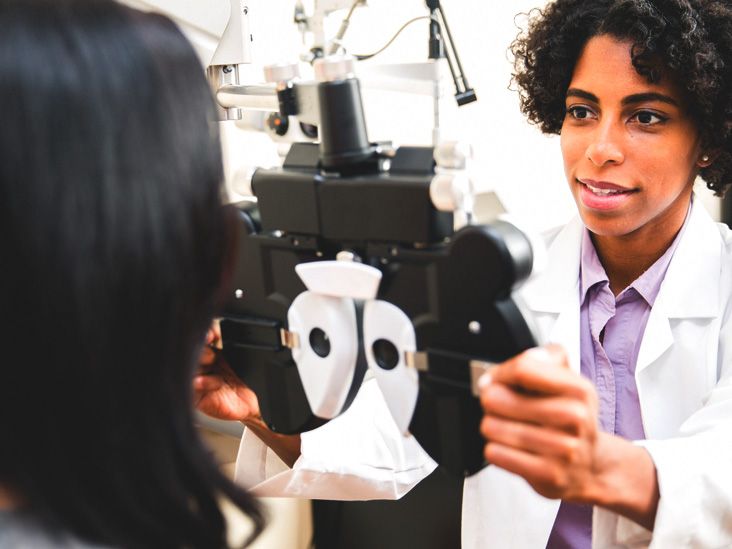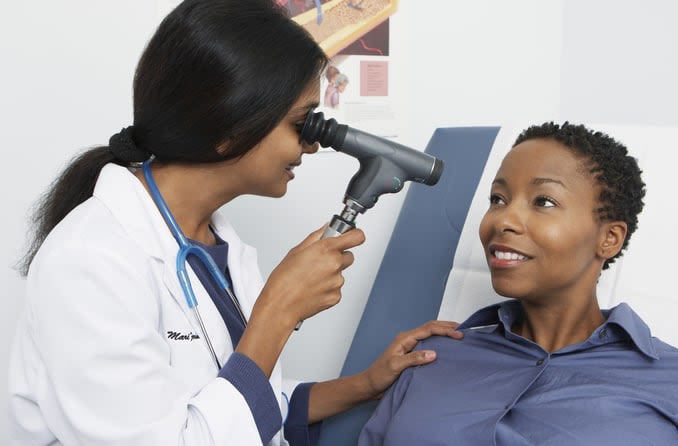Obtain Exceptional Treatment from a Seasoned Ophthalmologist in Nabua Today
Obtain Exceptional Treatment from a Seasoned Ophthalmologist in Nabua Today
Blog Article
The Significance of Routine Examinations With an Eye Doctor
Normal exams with an ophthalmologist play a critical role in guarding one's vision and overall eye health. These evaluations not only assist in very early identification of potentially incapacitating conditions yet likewise make sure that any essential modifications to treatment strategies are made in a timely way. The partnership developed with an ophthalmologist allows for tailored advice on eye care methods that can enhance long-term end results. However, lots of people continue to be unaware of the specific advantages these visits offer and the potential repercussions of overlooking them. Recognizing this vibrant raises important inquiries about individual health monitoring.
Comprehending Eye Health And Wellness
Comprehending eye wellness is critical for preserving total well-being and protecting against possible vision problems. ophthalmologist in nabua. The eyes function as our key methods of experiencing the globe, making it crucial to prioritize their health and wellness. Routine eye examinations play an essential duty in monitoring vision and discovering early indicators of eye illness
Variables influencing eye health and wellness consist of genes, way of living, and ecological conditions. Age-related adjustments can substantially influence vision, necessitating boosted watchfulness as one ages. Appropriate nutrition, including vitamins A, C, and E, in addition to minerals like zinc, can contribute to maintaining optimal eye feature. Furthermore, securing the eyes from hazardous UV rays and too much display time is critical in today's electronic age.
By understanding these factors, people can take aggressive procedures to guard their eye health and wellness. Prioritizing eye wellness is not just concerning vision; it is integral to improving one's high quality of life.
Common Eye Conditions
Identifying typical eye conditions is important for very early discovery and efficient management. Among one of the most prevalent issues influencing vision are refractive mistakes, including nearsightedness (nearsightedness), hyperopia (farsightedness), and astigmatism. These conditions result from irregularities in the form of the eye, bring about blurred vision that can often be fixed with glasses or contact lenses.
Cataracts, identified by clouding of the eye's lens, typically establish with age and can considerably hinder vision if left untreated. An additional frequent condition is age-related macular deterioration (AMD), which impacts the main part of the retina, leading to vision distortion and trouble in acknowledging faces.
Glaucoma, commonly referred to as the "quiet thief of sight," is noted by enhanced intraocular stress that can harm the optic nerve, resulting in permanent vision loss if not discovered early. Diabetic retinopathy is an additional major problem, stemming from diabetes-related damage to blood vessels in the retina, potentially bring about loss of sight.
Prompt recognition and treatment for these conditions can alleviate problems and protect vision, highlighting the relevance of normal analyses with see post an eye doctor.

Benefits of Regular Exams
Regular ophthalmologist examinations play an important duty in preserving eye health and wellness and stopping vision loss. These examinations permit the very early discovery of numerous eye conditions, such as glaucoma, cataracts, and macular deterioration, which can cause irreparable vision impairment if not identified promptly.
Additionally, routine exams promote the evaluation of general eye function, allowing eye doctors to keep an eye on any type of changes in vision and readjust rehabilitative lenses or therapies as necessary. Routine examinations also add to the administration of systemic health and wellness conditions, such as diabetes and high blood pressure, which can considerably affect eye health and wellness.
Additionally, these visits provide a possibility for individuals to receive personalized advice on eye treatment and protective actions, such as UV security and proper nourishment for eye health and wellness. Establishing a continual connection with an eye doctor ensures that people are kept educated about improvements in eye care and therapy choices.
What to Expect During an Exam
During an ophthalmologist test, people can prepare for a detailed analysis of their eye health. The appointment generally starts with a detailed case history testimonial, where the ophthalmologist will ask about any vision problems, clinical conditions, and household history of eye conditions. This information is critical for tailoring the examination to the person's demands.
Following this, the ophthalmologist will perform a collection of tests to assess visual acuity, which includes reading letters from an eye chart at numerous ranges. The evaluation may likewise consist of refraction examinations to determine the appropriate prescription for glasses or contact lenses. Additionally, the medical professional will assess the health and wellness of the eyes making use of a slit lamp, which supplies an amplified view of the eye's frameworks, including our website the cornea, lens, and retina.
Pupil extension is another common procedure throughout the exam, enabling for an in-depth assessment of the retina and optic nerve. Clients might experience short-term obscured vision complying with expansion, and sunglasses are typically suggested for convenience. ophthalmologist in nabua. On the whole, the examination is designed to recognize any type of prospective concerns early and guarantee optimum eye health and wellness for the future
Just How Often Should You Check Out?
Maintaining ideal eye wellness calls for a dedication to normal ophthalmologist check outs, which need to be tailored to private needs and danger elements. The frequency of these sees can vary substantially based on age, health standing, and details eye conditions.

Additionally, individuals with existing eye problems, such as glaucoma or diabetes mellitus, ought to abide by a more regular routine as encouraged by their eye doctor. People with a household background of eye illness may also require more normal check-ups. Inevitably, establishing a customized timetable with an eye doctor is vital for aggressive monitoring of eye health and early discovery of potential problems.
Final Thought
Routine check-ups with an ophthalmologist play a vital function in maintaining eye health and protecting against vision loss. Establishing a regular partnership with an ophthalmologist guarantees comprehensive eye health management and emphasizes the relevance of proactive actions in securing vision.
Report this page